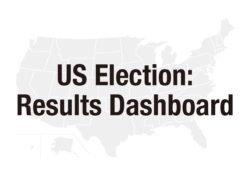Judge signals he’s willing to unseal some of Mar-a-Lago affidavit
13:00 JST, August 19, 2022
WEST PALM BEACH, Fla. – A federal judge said Thursday that he is “inclined” to unseal some of the affidavit central to last week’s FBI search of former president Donald Trump’s Florida home, instructing the Justice Department to redact the document in a way so it would not undermine the ongoing investigation if it were made public.
Federal Magistrate Judge Bruce Reinhart, appearing to reject the government’s argument for keeping the entire document sealed, said he would make a determination after next Thursday, when Justice Department officials are expected to submit their proposed redactions.
The affidavit has become the latest flash point in a criminal probe scrutinizing materials taken from the White House when Trump’s term ended last year. On Aug. 8, FBI agents executed a search warrant at his Mar-a-Lago estate in Palm Beach, carting away dozens of boxes containing what authorities have characterized as highly classified national secrets.
Reinhart, noting that he had reviewed the affidavit multiple times, said he believed parts of it could be made public without impeding the probe.
The government had argued that its investigation was in the “early stages” and that release of the affidavit could chill potential witnesses, risk the safety of those already interviewed, reveal future investigative steps and disclose significant amounts of grand jury material.
“I’m not prepared to find the affidavit should be fully sealed,” Reinhart said. “I believe based on my initial careful review of the affidavit many times that there are portions that could preemptively be unsealed.”
Reinhart said he would not make a decision until reviewing the government’s proposed redactions and would stay any ruling pending potential appeals – meaning the affidavit may not be made public for some time, if ever.
The affidavit would provide the most comprehensive rationale for why the government pushed to search Trump’s property – and what investigative steps it had taken beforehand. It would show who the government had interviewed, what it believed was potentially on the premises and why it believed there was probable cause that crimes had been committed.
The government has said it seized 11 sets of classified material and is investigating possible violations of the Espionage Act, among other potential crimes. Last week’s FBI search was unprecedented, with Justice Department officials acknowledging it became necessary only after officials were unable to recover the materials using less invasive measures.
Trump and his lawyers have called it unnecessary and draconian.
Thursday’s hearing lasted about an hour. The courtroom where it was held is approximately four miles from Mar-a-Lago. Cameras were not allowed inside, nor were recording devices.
Outside the courthouse, Trump lawyer Christina Bobb declined to answer questions, saying only that she was happy the former president’s team would probably see some of the affidavit. His lawyers did not file a motion in the case or argue in the courtroom Thursday, but Trump has publicly called for the release of the full document while denouncing the investigation – which originated as a dispute with the National Archives – as politically motivated.
A spokesman for the former president, Taylor Budowich, said that Trump “has made his view clear that the American people should be permitted to see the unredacted affidavit related to the raid and break-in of his home.”
Alluding to the Justice Department’s past investigation of Russian interference in the 2016 election, Budowich said, “No redactions should be necessary and the whole affidavit should be released, given the Democrats’ penchant for using redactions to hide government corruption, just like they did with the Russia hoax.”
Reinhart convened Thursday’s hearing after multiple news outlets, including The Washington Post, called on the court to release the affidavit. Attorneys for those organizations have argued that the document should be made public given the “historic importance” of the Justice Department’s investigation.
“Transparency serves the public interest in understanding and accepting the results. That’s good for the government and for the court,” Charles Tobin, a lawyer representing the media outlets, said in court Thursday. “You can’t trust what you cannot see.”
Tobin and other lawyers representing those calling for greater transparency, including the conservative group Judicial Watch, conceded that some materials may need to remain secret. But they argued repeatedly that the judge should limit what’s omitted and compel the government to explain every redaction.
The judge indicated he may hold a closed hearing at which the government would be asked to explain its decisions.
Jay Bratt, a senior Justice Department official who represented the agency in court on Thursday, said it would not be “practical” to put out a redacted version of the affidavit. “There would be nothing of substance,” he said.
It was unusual that Bratt, who heads the Justice Department’s counterintelligence and export control section, argued the government’s case opposite a slate of lawyers representing the news media. He has been closely involved in the investigation, having visited Mar-a-Lago in June to examine the materials Trump had stored there. The counterintelligence and expert control section leads investigations of leaks of government secrets and does not usually argue cases in court.
Former Justice Department officials closely following the case have said the affidavit is unlikely to contain any “good” information for the former president, and, as The Post reported earlier this week, Trump’s advisers had not reached a consensus on whether its disclosure would be in his best interest.
Law enforcement officials submit such documents to a judge as part of their application for a search warrant. Affidavits typically contain information addressing why authorities think there is evidence at a certain property and other details about their investigation.
Late last week, the judge – with the Justice Department’s consent – unsealed the search warrant and an inventory list including vague descriptions of the classified materials federal agents say they recovered from Mar-a-Lago. On Thursday he agreed to release other, less substantive documents after none of the parties objected.
Legal experts said that the Justice Department’s reticence to publicize the affidavit is consistent with how the agency typically conducts investigations and that it would be highly unusual for a judge to release the documents in full amid an ongoing investigation.
Daniel Richman, a Columbia University law professor and former federal prosecutor, said it’s unusual that a judge would potentially unseal an affidavit before an investigation concludes. Typically, he said, “affidavits are released in the pre-trial process after charges have been filed.
“There are many reasons for secrecy,” Richman said. “Among them is the need for the government to lay this all out as extensively and clearly as possible. And if the government regularly worries about immediate disclosure of affidavits, I fear the extent to which it lays out probable-cause basis would be chilled.”
People who have conferred with Trump in recent days said the former president believes that any information made public about the investigation of his handling of classified material will rile his supporters, ultimately benefiting him politically.
But others in Trump’s orbit fear that such a move could backfire, because they do not know exactly what it contains.
"News Services" POPULAR ARTICLE
JN ACCESS RANKING







